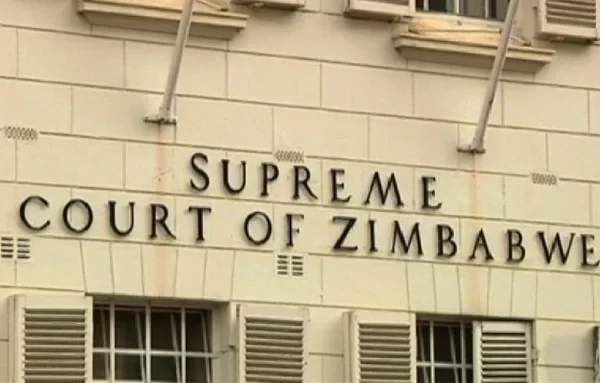
THE Supreme Court has thrown out an appeal by former St Johns school and Triathlon Zimbabwe coach who was challenging his conviction and sentence for sexually abusing four teenage boys.
The convict, David Edward Gardner, was found guilty of indecent assault after he abused a 14-year-old boy in 2002 at his Highlands home.
In November 2005, at Afdis Camp, Nyanga, Gardner indecently assaulted another 14-year-old boy.
In August 2006 in Lausanne, Switzerland, Gardner again committed the same offence against another student.
In the fourth count, prosecutors proved that in August 2006 in Budapest, Hungary, Gardner continued with his wayward ways.
Gardener pleaded not guilty to the charges arguing the complainants were influenced by their parents.
He also said the complainants were plotting his downfall because of a pending labour case he had against St John’s College.
Twelve witnesses who included the complainants and their parents testified against him.
- Female politicians complain over sexual harassment
- Kuipers headlines Africa Triathlon Championships team
- TZ switches focus to SA championships
- Preps for triathlon Pink-day gather momentum
Keep Reading
However, he was found guilty at the Magistrates Court and sentenced to 24 months in jail with one year suspended for five years on condition he does commit the same crime within that period.
Aggrieved by the verdicts of the trial court, Gardner filed his appeal before the High Court but lost the case.
The High Court ruled that there was nothing to support his claim that there was a conspiracy against him.
Gardner took the matter up to the Supreme Court.
A three-panel bench comprising Justices Chinembiri Bhunu, George Chiweshe and Joseph Musakwa, however, dismissed his appeal.
“The amended grounds of appeal have no merit. The appellant may have sought to argue that there cannot be said to be any corroboration of the complainants’ testimonies as a result of the prosecutor’s conduct,” the Supreme Court Judges ruled.
“However, the appellant’s own conduct tends to corroborate the evidence of the complainants.
The Supreme Court said the fact that the allegations came from three different complainants who were indecently assaulted at different places and on different dates raised suspicion.
“Therefore, with regard to the above, we are of the view that the evidence of the three boys was enough to prove beyond a reasonable doubt that the appellant was guilty of the crimes involved and therefore, dispels any claim that the allegations were as a result of conspiracy,” they said..
“The appellant waited for a conviction and after it became apparent that the conviction would not likely be overturned, he sought to claim an irregularity which occurred before the commencement of the proceedings.
“In addition, corroborative evidence played a very essential role in proving the guilt of the appellant beyond a reasonable doubt. Therefore, there is no merit in the appeal.”










